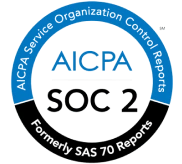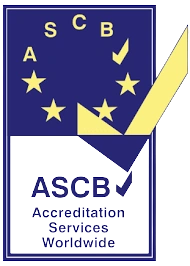Dealing with large datasets is pressuring for HRs when they have to meet their targets to hire talented people on time. Further, the management of daily employees’ inquiries is even more taxing.
That’s when the benefits of employee self service portal (ESS) come into the picture. HR admins can exchange information faster: news, latest updates, solving queries, automating a mundane task, and more.

With these portals, employers and employees track any important work-related information easily.
The benefits of the ESS portal are increasing and ever-growing because of rapid changes in the technology and employee experience touchpoints.
Important Features To Look Out For In An ESS Portal:
Employees and employers should be able to open their accounts in the self service system. With this profile, their entire tenure and work profile history is sorted in one location.
Employees can check who they report to within their profile as the admin updates their TLs name in the chart. Similarly, employers can verify how many employees are working under them at a given period to track their performance.
All this happens without extensively taking the HR team’s assistance. Further information available in an employee self service system can be:
- Payroll information.
- Shift hours and working location
- Bank details of the employee
- Company policies
- Leaves allotted to an employee
- Leaves applied: rejected/pending/approved by the hiring manager.
- Educational and employment verification proofs.
Top 10 Benefits Of Employee Self Service Portal
Real-time analytical reports to understand employees better:
Analytics embedded in the ESS portal is a gold mind of employee data. From there, HR admins, recruiters, or hiring managers can know a lot about their new, existing, and exiting employees.
For instance, they can know:
- If most hired employees are happy with their working hours or shifts.
- If there is equality in gender pay between employees in the firm.
- If employees feel connected and heard in the organisation.
It is deciphered from the constant or growing levels of employee engagement on the employee self service portal.
Cut down unnecessary overhead costs:
ESS portals like uKnowva are available on the cloud, which means employers no longer have to invest heavily in people management tools.
Plus, these tools allow employees to record their important data and information online. Therefore, there’s a lesser dependency on paperback.
Track of compliance fulfilment work:
One of the core benefits of the employee self service portal is that it allows HRs to track compliance completion. They can see how many employees have uploaded all the documents star-marked in the system.
If there’s any lack of that, they can instantly alert employees.
Employees also check their contribution or compliance level in the system from their profiles. It can show if it’s not up to the mark as per the benchmarks. Then, they can go to profile settings and upload more documents if required.
Efficiency tracking:
HRs and team leaders are at ease to bifurcate between their employees’ performance levels. The analytical reports play a major role in these benefits of using a trusted ESS portal.
TLs can check if employees in their team are completing projects on time from these real-time dashboards.
They can also verify the completed project count and see how many leaves an employee has applied for in a given period. This will form a concrete tracking system of an employees’ efficiency level.
Eco-friendly ESS portal:
Another core amongst the rest benefits of employee self service portal is that it helps save environmental costs.
That’s because it is online or on the cloud. So, employees are not burdened to use paperwork for tracking their documentation on each project.
Moreover, when there are real-time dashboards for HR managers to peruse on-demand, they don’t need to clear paper-based presentations. These save stationery overhead costs involved for daily reporting and documentation.
Clear-cut communication:
Social Intranet features help employees have fast, accurate, on-point conversations with their reporting managers or peers.
There is no scope of misunderstanding any chain of thought when inquiries are cleared out within a few clicks.
For instance, employees can drop HR admins a direct message on the employee self service system.
The HR contact person will reach them as soon as possible on the chat box itself. They don’t have to phone or email the HR executive extensively to solve the issue.
Enhanced security levels:
ESS portals are known for their 3 to 4 levels of security. It’s also majorly because you find them on the cloud. Also, each message, post, or employee profile on the ESS system is safe, secure, and highly encrypted.
The hosting server of the tool also ensures that the system is live and on the server 99.99 percent of the time. This way, employees never lose touch with what’s happening in their organisation either.
Sharing knowledge is easy and fast:
Teal leaders can share knowledgeable documents, links, or learning material with their team members on an ESS portal.
They don’t have to email them separately. It helps in fastening the learning process and getting quicker feedback concerning it.
Less burden on reporting managers:
Another key plus point from the list of 10 benefits of employee self service portal is less burden on reporting managers. Employees learn to carry out their mundane tasks with automated and customised/personalised features.
Their employee experience on the system continues to improve. Reporting managers don’t have to micromanage their potentially good and top-scoring employees.
Reporting managers and hiring managers can browse employees’ profiles whenever they want to. From there, they get real-time data on employees’ engagement rate, happiness index, project completed, skillset, and more.
Accurate time management of each employee:
Employees learn to be entrepreneurs by holding themselves accountable for their timesheets and workflows. That’s a prominent advantage amongst other benefits of employee self service portal.
Because of automated reminders to fill up their timesheets, employees can track their progress.
They don’t need an HR or reporting manager for that. Gradually, such employees become more responsible when they see that each clocked-in and clocked-out hour matters in the firm.
Conclusion:
Employee self service system makes a new or existing hire self-reliant and less dependent on others for mundane tasks. It saves their time and the organisation’s operational costs.
uKnowva HRMS is one such system where employees have been learning to manage their skills, time, and projects well.
Request a demo. Take a product tour today!












